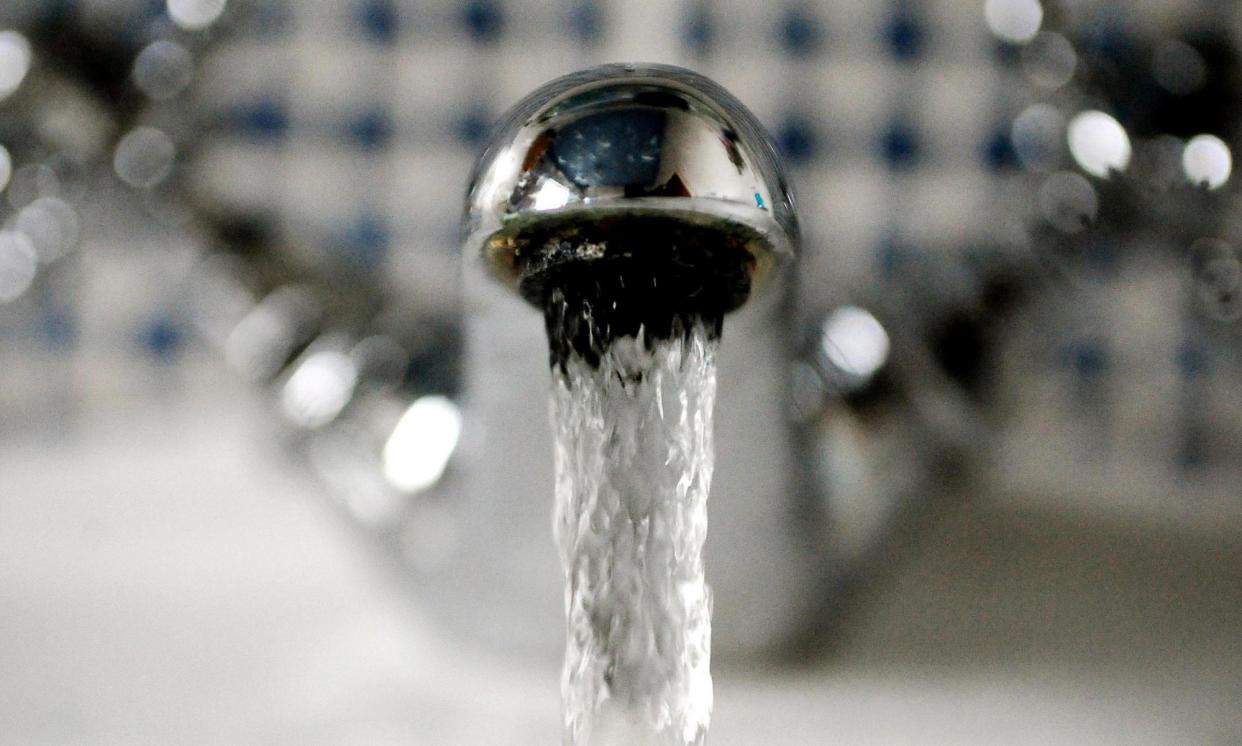Farmers’ union lobbied to increase pesticide limit in UK drinking water

The National Farmers’ Union lobbied to increase the amount of pesticides allowed in the UK’s drinking water and to allow farmers to spread manure more frequently as part of a post-Brexit loosening of environmental regulations, it can be revealed.
Nick von Westenholz, the director of strategy for the lobby group, met Timothy Elliot-Murray-Kynynmound, the Earl of Minto, who is the minister of state for regulatory reform, last year and asked him to review EU-derived environmental protections.
The Guardian revealed earlier this year that the UK’s EU-derived environmental regulations were being eroded following Brexit.
According to government minutes released to Unearthed, the journalism arm of Greenpeace, after a freedom of information request, Von Westenholz told Minto in July last year: “Thresholds for pesticide residues are tiny. Burden on farmers and water companies on the amount they have to invest in systems to meet negligible requirements.”
He added: “Opposition to relaxation of standards is around the greater use of pesticides. But [there is] no evidence that increasing thresholds would do any harm.”
The NFU said the statement made during the meeting did not mean it wanted the thresholds increased, just that it wanted them reviewed. A spokesperson said: “He explained the NFU’s stated policy position, which questions whether the strict, historic limits on pesticide residues in water are based on up-to-date science. These limits can prevent farmers from accessing important products in tackling pests and diseases. The NFU advocates for a review of the effectiveness of the DWD [drinking water directive] and its impact on farming, but has no policy on the details of any reform or amendment to the regulation.”
Von Westenholz and Minto agreed that the current pesticide level standards for drinking water, which are in line with the EU’s, are derived from EU legislation and could therefore be changed due to Brexit.
Related: Pesticides from farming leach into world’s waterways at rate of 710 tonnes a year, UN research shows
The NFU also asked Minto if the government would loosen key EU-derived rules to allow farmers to spread manure more frequently. When too much manure is in rivers, lakes and other waterways, it increases the levels of nutrients including phosphates and nitrates within. These cause an overgrowth of algae and other plant life, which chokes aquatic life. There is already a significant problem with additional nutrients from human sewage in the UK’s waterways.
The notes show Von Westenholz said the EU’s nitrates directive “puts restrictions on farms and how they store and spread manure. All done by date. Farmers should be allowed to be sensible to make decisions as to when to fertilise.”
An NFU spokesperson said: “Mr Von Westenholz stated that reformed regulation could allow farmers more flexibility in when they spread manures while still achieving the same level of environmental protection of watercourses.”
Officials’ notes say the NFU had identified nine pieces of EU-derived legislation as “priorities for replacement”, including three directives affecting water: nitrate pollution, pesticide approvals and the water framework directive (WFD) – the central plank of European water protection legislation. Officials wrote in the memo that reform of the WFD “aligns well with where Defra considers there to be opportunity for review”.
The Guardian revealed last year that ministers told stakeholders they were planning to scrap or change the EU’s WFD.
Another EU regulation Von Westenholz said was causing farmers problems was the habitats directive. He told Minto the directive was “obstructive for development for farmers” because “new units require planning consent, offsetting requirements”.
Michael Gove, the levelling up secretary, last year tried to remove the responsibilities under the directive not to increase pollution in sensitive waterways, in order to decrease the cost of building homes. After an outcry over the intention to allow yet more human waste in rivers, and opposition from the Liberal Democrats and Labour, the government scrapped the plans.
Ben Reynolds, the executive director of the Institute for European Environmental Policy UK, said: “The suggestion that pesticide residues in water should be allowed to increase is very concerning, particularly at a time when much of our freshwater is already in very poor condition, not least from agricultural runoff.
“The idea that diverging on environmental policy would not affect trade is questionable, as the first dispute being brought by the EU through the trade and cooperation agreement mechanisms is based on just that.
“The farming sector is under huge and varying pressures at the moment, but lowering environmental standards will only exacerbate those problems as it impacts on the natural habitat with which it is inextricably intertwined and depends.”
Richard Benwell, the chief executive of Wildlife and Countryside Link, a coalition of environmental charities, said: “Raising thresholds for pesticide contamination in drinking water would leave people and wildlife more exposed to the risks of pesticide pollution. Scientists are only just beginning to understand the human health and ecological effects of chronic chemical pollution, particularly when rivers become mixing pots for lots of different toxic substances. In some cases, the current limit on pesticide pollution may not be protective enough.”
A spokesperson for the Department for Environment, Food and Rural Affairs said: “We are clear in our commitment to uphold environmental protections and continue to engage with a wide range of organisations and stakeholders to achieve our ambitions for water and the environment. We have provided additional budget to the Environment Agency allowing them to carry out more than 4,800 farm inspections last year, helping farmers to meet their environmental obligations. We continue to work with the EA to hold anyone who pollutes our rivers to account on a scale never seen before.”


